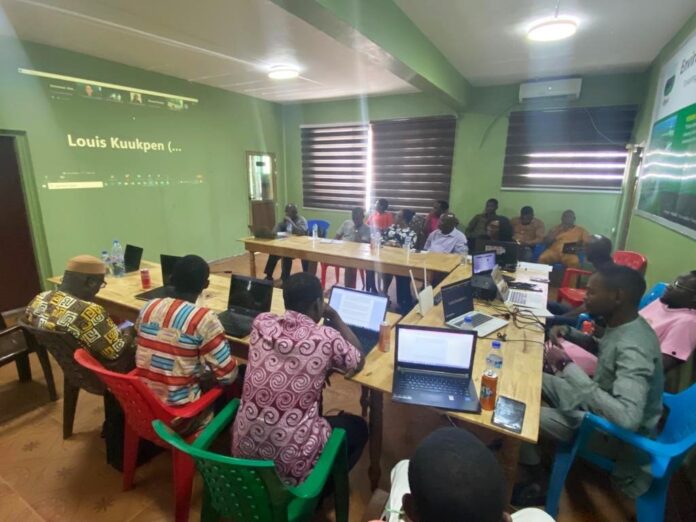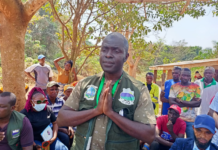Monrovia, Liberia; 10 November 2022: The United Nations Development Programme (UNDP) and Liberia’s Environment Protection Agency (EPA) bring together decision makers to map the country’s essential regions for biodiversity, climate change mitigation, and sustainable development.
UNDP and the EPA are working together to map pathways towards achieving the country’s top policies around nature, climate, and sustainable development.
‘Maps of hope’ will identify areas where protecting, sustainably managing and restoring nature can yield the greatest benefits for all.
Collaboration with global actors will scale up these efforts to influence key international policy processes, putting nature at the heart of development
From the 31st of October to the 4th of November, nearly 20 of the country’s technicians and environmental policy expert met in a hybrid format to create ‘maps of hope’ that identify Liberia’s essential life support areas.
These maps will locate where actions to protect, sustainably manage, and restore nature can enable Liberia to deliver on its strategic priorities around biodiversity, climate change mitigation, and sustainable development.
Humanity faces an unprecedented planetary challenge. According to the Intergovernmental Panel on Climate Change (IPCC) report, the world has only a decade to avoid the catastrophic impacts of climate change.
Furthermore, the Intergovernmental Panel on Biodiversity and Ecosystem Services (IPBES) confirms that if biodiversity loss continues at its current rate, one million species will be at risk of extinction.
The effects of climate change and biodiversity loss will likely be felt far and wide, posing two of the greatest threats to humanity per the World Economic Forum’s Global Risk Report.
However, there are solutions that are readily available. By protecting, restoring, or sustainably managing nature, nations can provide one third of the solution to mitigate climate change, improve water security, and safeguard the livelihoods of millions of people directly dependent on nature for their subsistence.
“Liberia is rich in the context of Biodiversity, and we pride ourselves as forerunner in fostering the agenda of nature-based solutions at the national and global level. The development of the maps of hope is key to informing data collection and project initiatives which will guide our development partners to achieve our national development plan. It is essential that our national experts together with the international team co-create the maps to reflect our national priorities, build on existing initiatives and innovation”, said Mr. Randall M. Dobayou II, Deputy Executive Director, EPA.
Liberia, along with 12 other pilot countries (Cambodia, Chile, Colombia, Costa Rica, Dominican Republic, Ecuador, Haiti, Kazakhstan, Nepal, Peru, South Africa, and Uganda), will create ‘maps of hope’ developed to expand the use of spatial data in decision-making processes and promote the implementation of nature-based solutions in the country. The outcomes from this initiative will be used by UNDP and national stakeholders to scale-up action globally.
Over the coming weeks, 196 countries will agree on a new set of global goals for biodiversity that will guide action for the next 30 years, culminating with COP15 of the Convention on Biological Diversity to be held in December, in Montreal, as well as an associated international policy framework.
The results of this project will be used to influence key international policy processes, including activities related to the United Nations Framework Convention on Climate Change (UNFCCC), the United Nations Convention to Combat Desertification (UNCCD) and the 2030 Agenda for Sustainable Development.
“I believe this project is a testament to the United Nations Development Programme’s commitment to support countries in implementing nature-based solutions, using cutting-edge science to contribute to the achievement of the Sustainable Development Goals (SDGs),” said UNDP Liberia’s Deputy Resident Representative, Louis Kuukpen.
The workshop was led by UNDP and Liberia’s Environment Protection Agency (EPA), with support from the Swedish International Development Cooperation Agency (SIDA).
Release by UNDP Liberia























